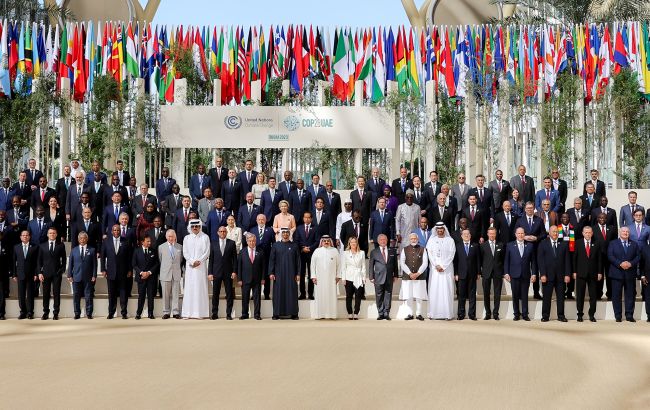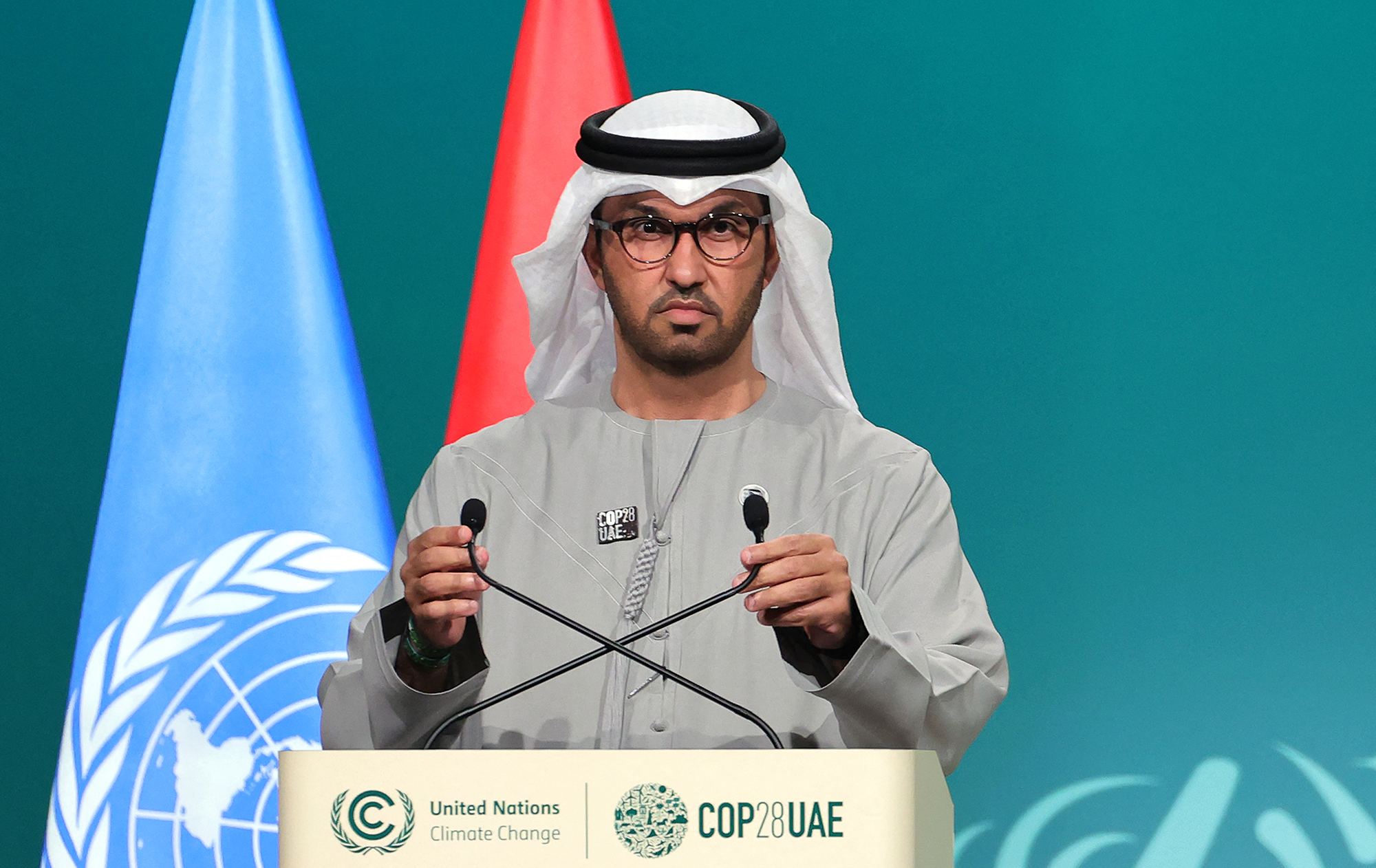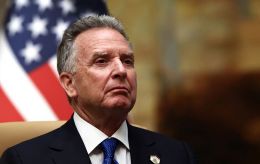COP28 climate deal marks shift away from fossil fuels but sparks controversy
 COP28 summit in Dubai (Getty Images)
COP28 summit in Dubai (Getty Images)
A new climate deal was reached after two weeks of heating debates on Wednesday, at the COP28 summit in Dubai, marking an unprecedented global commitment to shift away from fossil fuels. However, the agreement's use of vague language raises the potential for some countries to take minimal action, CNN reports.
The Global Stocktake agreement, finalized in the morning session, resulted from two-week extended talks.
According to Reuters, over 100 countries fervently advocated for robust wording in the COP28 agreement, aiming to "phase out" the use of oil, gas, and coal. But they faced formidable resistance from the OPEC-led oil producer group, spearheaded by Saudi Arabia. OPEC members control about 80% of the world's oil reserves along with almost a third of global oil output.
On the other hand, small island states highly susceptible to climate impacts appeared to be prominent advocates for strong language in the final agreement. They were backed by the United States, Canada, and Norway, as well as the European Union states and numerous other governments.
The intense clash prolonged the summit, extending it by a full day into overtime.
"Historic" agreement
COP28 President Sultan Al Jaber hailed the agreement as "historic" during his address to national delegates in the final session.
“We have language on fossil fuels in our final agreement for the first time ever,” he said, characterizing the deal as a "paradigm shift" with the potential to redefine global economies.

COP28 President Sultan Al Jaber (Getty Images)
The agreement “calls on” countries to “contribute” to global efforts to reduce carbon pollution in ways they deem appropriate. The options offered include "transitioning away from fossil fuels in energy systems" and accelerating action to achieve net zero by 2050.
What the countries' representatives say
While some countries hailed the agreement as signaling the end of the fossil fuel era, others, including more ambitious nations and climate advocates, voiced dissatisfaction, deeming it insufficient to address the escalating urgency of the climate crisis.
The lead negotiator for the Alliance of Small Island States, Anne Rasmussen said "We have made an incremental advancement over business as usual, when what we really need is an exponential step change in our actions."
Danish Minister for Climate and Energy Dan Jorgensen pointed out the circumstances of the deal.
"We're standing here in an oil country, surrounded by oil countries, and we made the decision saying let's move away from oil and gas," he said.
Despite controversy and accusations of oil industry impact, Western nations involved in the talks view the deal as a success and a reaffirmation of multilateralism.
U.S. climate envoy John Kerry acknowledged differences in wording but praised the agreement's strength, clarity, and focus on the 1.5-degree Celsius target to limit global heating.
Loopholes for the fossil fuel industry
Harjeet Singh, the head of global political strategy at the nonprofit Climate Action Network International, said “The resolution is marred by loopholes that offer the fossil fuel industry numerous escape routes, relying on unproven, unsafe technologies.”
He means the controversial technology known as carbon capture and storage — a suite of methods developed to extract carbon pollution from facilities like power plants and the atmosphere, then store it underground. The agreement highlights the expedited development of this technology.
Numerous scientists have voiced concerns, asserting that carbon capture remains unproven on a large scale, could divert attention from policies aimed at reducing fossil fuel usage, and is deemed excessively costly.

